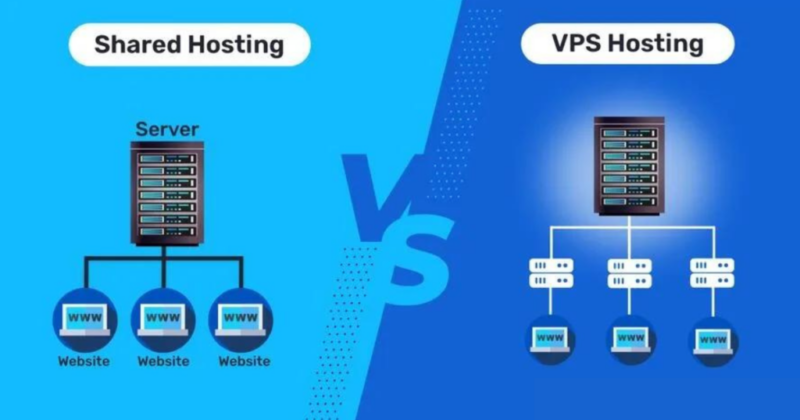A Virtual Private Server (VPS) is a server that has some of the features of a dedicated server within a larger physical one. It’s a popular choice for hosting websites and applications. Here are the advantages and disadvantages of using a VPS.
Page Contents
Advantages

VPS is generally cheaper than a dedicated server, making it a more affordable option for companies or individuals with budget constraints.
Resource Allocation
VPS allows for customization of resources like CPU, RAM, and storage. This flexibility ensures that your website or application has adequate resources to operate optimally.
Isolation
All the VPS are on the same server, but they are isolated from one another. This isolation provides security and prevents performance issues caused by other users on the same server.
Root Access and Control
Users have root access, enabling them to install and configure software, manage security settings, and customize the server environment according to their specific requirements.
Scalability

VPS hosting can easily be scaled up or down by adjusting the allocated resources. This is a big plus because it will adapt to your business’ changing needs, and you can be sure your business’ needs will change at one point.
As a business grows, it often requires additional resources and capabilities. This might include scaling up infrastructure, hiring more employees, expanding product lines, or entering new markets.
Shifts in consumer preferences, market trends, or competitive landscapes can influence a business’s needs. It might necessitate changes in product offerings, marketing strategies, or customer engagement approaches.
Emerging technologies can impact how a business operates. Adopting new technologies may be necessary to stay competitive, improve efficiency, enhance customer experience, or develop innovative products or services.
Improved Performance
Compared to shared hosting, VPS generally offers better performance since you have dedicated resources allocated to your virtual server. This type of hosting is generally faster than shared hosting. In this environment, you don’t share your resources with other users, which allows for more consistent and reliable performance – and fast VPS hosting.
Enhanced Security
The isolated environment of a VPS enhances security by preventing malware or other issues that might affect neighboring users on a shared server.
Disadvantages
While VPS offers more resources than shared hosting, it’s still limited by the physical server’s capacity. If you outgrow the VPS, migrating to a dedicated server may be necessary.
Technical Knowledge Needed

You need some technical knowledge to manage a VPS, including knowledge of server management, software installation, security configurations, and troubleshooting.
Responsibility for Maintenance
Users are responsible for server maintenance tasks such as updates, patches, security, and backups. This can be time-consuming and requires consistent attention.
Potential Overselling
Some hosting providers might oversell resources, which could lead to performance issues during peak usage times if not managed properly.
Dependency on Hosting Provider
Your VPS’s performance and reliability depend on the hosting provider. If the provider experiences technical issues or goes offline, your VPS will be affected.
To avoid this risk:
- Choose a hosting provider wisely.
- Check the uptime guarantee and reliability track record.
- The provider should guarantee at least 99.9% uptime so visitors can open your website.
- Investigate the hosting provider’s infrastructure, including server hardware, network, and data center locations.
- Opt for a provider with fast servers and strategically located data centers for better performance.
Costs Add Up

While VPS is cost-effective compared to dedicated servers, the costs can still accumulate, especially if you need to upgrade resources, add extra features, or opt for managed services.
To avoid overpaying for VPS (Virtual Private Server) hosting while still obtaining the necessary performance and features, consider the following strategies.
Assess Your Needs Carefully
Understand your website or application requirements, including CPU, RAM, storage, bandwidth, and any specific software or configurations needed. Tailor your VPS plan to meet these needs without excessive resources.
Start with a Small Plan
Begin with a lower-tier plan and monitor your usage. You can always upgrade to a higher plan if needed. Many hosting providers allow for easy and quick upgrades.
Look for Promotions and Discounts
Check for ongoing promotions, coupons, or special offers from hosting providers. Many companies offer new customers discounts or discounts for longer-term commitments.






